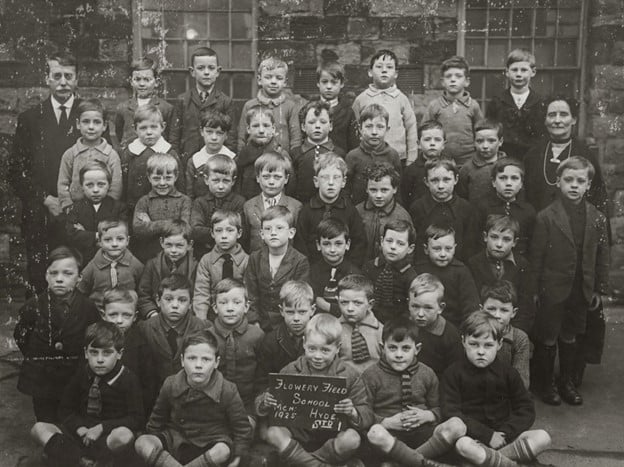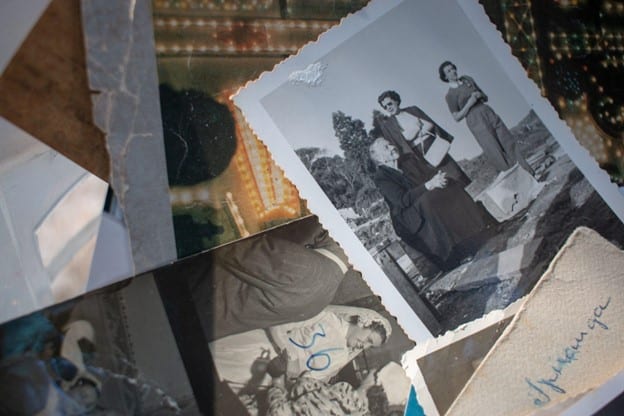The Art of the Interview: 7 Tips for Conducting Family History Interviews
January 6, 2023
If you’ve ever interviewed someone, you know a lot more goes into it besides asking questions. Interviewing is an integral part of research that requires a high level of empathy and excellent listening skills.
Learning about someone’s experiences and opinions through their account and effectively reiterating their thoughts is a skill that takes time to hone. Whether you’re the interviewer or you hire a ghostwriter, being the vessel to express someone else’s experiences is a difficult task to complete without proper preparation and tactics.
Conducting family history interviews takes it one step further. Family interviews are very personal and require a lot of digging to reveal how the interviewee really feels about the topic.
If you’re planning on hiring a ghostwriter for your autobiography or writing your own family story, we’ve put together seven essential tips and tricks to get past the surface and help your interviewee open up to fully express themselves.
What is a family history interview?
A family history interview can help you gather information about your family and preserve details and memories before they’re lost forever. They’re particularly helpful to learn more about family members that you may not know well or to fill in the gaps in memories you have that are a little fuzzy.
Family history interviews take a deep dive into the life of a family member from birth to the present day and can even touch on subjects like future goals, legacy, and identity.
You’ll reveal some of your best family stories and memories and gain insight into your family dynamic while learning about the experiences of your family member as told by them.
Why might you need to conduct a family history interview?
There are a few main reasons why you might need to conduct a family history interview. If you’re writing an autobiography, you may need the help of a family member to jog your memory on specific events or recollections of life before you can remember.
You might also consider hiring a ghostwriter to conduct family history interviews and write your autobiography.
Conducting a family history interview with someone else’s family requires a great deal of enthusiasm and skill. A genuine willingness to learn and interest in the experiences of someone else helps a ghostwriter connect with their stories and effectively recount them.
A ghostwriter will likely take lots of time listening to stories about your family to fully understand the best questions to ask and the right way to ask them.
Key Topics to Cover and Questions to Ask
With family history interviews, you’ll essentially want to start with questions from the beginning of their life story.
Since you're looking to gain a thorough understanding of the person's entire life experience as it applies to the topic at hand, some key topics to cover and questions to ask during a family interview include:

- Life events from childhood. Memories and effects of childhood life events often stick with us for our entire lives. Touching on different topics from childhood, like birth, childhood memories, school, celebrations, holidays, and family traditions, will spark interesting conversations filled with laughs and reminiscing. Questions like “Do you know anything about the day you were born?” or “How was your name chosen?” are great places to start.
- Life events from teenage years and early adulthood. Teenage years and early adulthood are some of the most pivotal points in the lives of many. For most, it’s a representation of newfound freedom and life experiences. Topics like high school, college, early careers, and travel will likely bring up great memories that you’ll want to know more about.
- Love, marriage, and children. Many great stories are about falling in love, getting married, and having children. As a milestone for many, asking questions like “What was your wedding like?” or “How did you feel when you had your first child?” will likely bring up touching stories.
- Identity. People love to talk about themselves, especially about things they enjoy. Asking about hobbies, personality traits, and how they view themselves as a person will definitely get a good conversation going.
- Life lessons and legacy. Life lessons are a sentimental topic that can reveal a lot about a person. As we get older, many of us experience unforgettable life lessons that shape who we are as a person and remind us of what we want to leave behind. Tapping into these topics not only allows you to gain a better understanding of your interviewee, but also helps you portray them most accurately.
- The future. A person’s future goals can be a great way to understand their past. Asking questions like “What do you look forward to?” or “What do you hope to accomplish in the next five years” can reveal a lot about someone.
- Family history. One of the best ways to learn more about a person is through their own family. Learning more about a person’s grandparents, parents, siblings, and extended family helps you understand their family dynamic and how it could have shaped them as a person.
7 Tips for Conducting Family History Interviews
You can ensure your family history interview is filled with useful information and interesting stories by planning ahead and following these steps.
1. Be prepared.
Preparation is key when conducting family history interviews.

If you’re interviewing a family member that you don’t know well, ask other family members questions about them before you prepare your questions.
Doing some initial research is the best way to understand how context applies to your questions and helps you know the topics you want to cover.
After research, be sure to write and print out your list of questions, so they’re in front of you during the interview.
Also, know ahead of time how you’ll conduct the interview. Will you meet in person or interview over the phone? How will you record responses? Knowing exactly what you need to do on your part helps the interview go smoothly.
2. Make them feel comfortable.
The best way to get past the surface level in any interview is to make the interviewee feel comfortable as soon as you meet. This is particularly important with family history interviews because you’ll likely cover sensitive topics that take a level of trust to open up about.
If you’re interviewing someone you don’t know well, try to build rapport with them. Try to connect with them about things you have in common or ask them about their day before you get started.
Start the interview off by letting them know that if any topic makes them feel uncomfortable, you can skip over it. Be sensitive to their responses and pay attention to their body language and tone in case a question makes them uncomfortable.
3. Lead the interview but let them do most of the talking.
Leading is an important aspect of having a successful interview. To lead the interview, ask the right questions, but let the interviewee do most of the talking. If they get off track at any point, let them finish but always refer back to the initial question until you feel like they’ve addressed it.
Always ask follow-up questions. Even when the interview goes off-topic, follow-up questions can connect the dots back to the original question or dig deeper into a new topic you didn’t know you wanted to cover.
4. Ask open-ended questions to get past the surface level.
When you get past the surface level, you tap into pertinent details that aren’t revealed easily.
Avoid asking yes or no questions and stick to open-ended questions to get the most detail in your responses. Asking a question like “How did you meet your spouse?” instead of “What is your spouse’s name?” sets the stage for bringing up memories and telling stories by leaving the door open for an in-depth response.
When you get surface-level responses, use follow-up questions to dig into more detail. But remain cognizant of your family members’ feelings. If the question seems too touchy, skip over it and avoid asking for more information.
5. Use objects to strike up memories.
Objects like family photos, old letters, yearbooks, and music can be very near and dear to people's hearts and easily bring up stories and memories.
Looking at a photo or playing a particular song can bring your interviewee back to a specific moment in time, sparking feelings and details they may have otherwise forgotten.

6. Video or audio record the interview.
Family history interviews can be hours long, and it’s easy to get off track and forget important details. Recording your interview is a must to ensure you have all the details in case you miss something. Having a recording of your interview is also beneficial for finding direct quotes.
Before you record your interview, be sure to get permission from your family member or interviewee and decide whether you want to audio or video record.
7. Follow-up after the interview.
After your interview is complete, always follow up with your family member.
Once they’ve had some time to process the conversation, following up is necessary to check in to see how they feel after the interview and thank them again for taking the time to sit down with you. You should also ask if they have anything else they would like to add.
Final Thoughts
Conducting a family interview can be a great bonding experience for you and your family member. It’s an opportunity to learn more about someone else’s life and how their experiences have shaped your family and, ultimately, yourself.
Approaching the interview with these seven tips will set you up for success in finding the answers to your questions. Understanding what it takes to conduct a family history interview can also help you decide whether to hire a ghostwriter for your autobiography. Either way, you’ll approach your family history project with knowledge and an open mind.






























